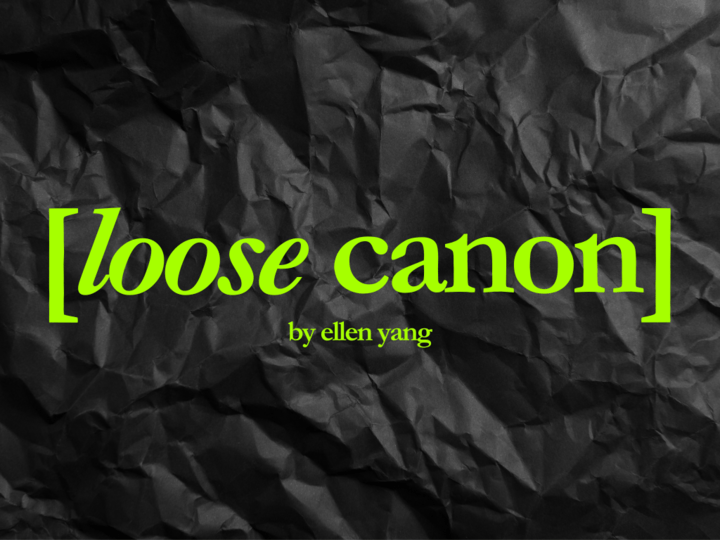A rising star alum returned to Stanford this past week for a reunion weekend. Despite only graduating ten years ago, Christina Najjar ’13 has already left a massive legacy for herself: online, she is Tinx, the self-dubbed “older sister of TikTok.”
Najjar has over one million followers on the platform and is a well-known resource for young women on everything from dating to career advice. She often nicknames her tips as “starter packs” or “theories,” but really? They’re an advice column.
She’s not the only one to follow this model — countless influencers curate similar advice content on their accounts. On TikTok, advice has found a new genesis. While online influencers are certainly not traditional advice columnists, they fulfill a similar function: responding to audience inquiries, providing short-form recommendations and sharing incredibly intimate stories — all for free and endless public consumption.
But why is this genre so big? Is it merely our increasing consumerist habits, or the rocketing need to form more human connections? We might begin to formulate an answer by rewinding to the year 2010.
For two magical years on the Internet, there was a woman who was not only compassionate, but present. You could write to her about your problems and she would write back. She’d call you “sweet pea” and then tell you about the worst possible details of her life — and also about some of the very best — in the hopes that they would help you, too.
When Cheryl Strayed anonymously took over the advice column “Dear Sugar” for the digital publication “The Rumpus” in 2010, she placed vulnerability at the heart of her writing. Unlike many of her predecessors, who often curated strict auras (see “Dear Abby” and “Ask E. Jean”), Strayed took a deeply personal approach to her written answers.
She shared sensitive stories about addiction and painful memories of her mother. She never shied away from writing about the times she’d resented a beloved friend or struggled with her own insecurities. Alongside the allure of the traditional advice column, narrated by a poignant voice and interspersed with rich stories, this signature candor eventually drew in thousands of readers per post.
I first discovered Strayed’s work in ENGLISH 187C: “The Evolution of the Feminist First-Person Essay, 2000-present,” a discussion-based class taught by professor Laura Goode last fall. Although I was encountering Strayed’s writing for the first time, I felt I already knew her: Strayed’s column is perhaps the earliest blueprint of an emerging contemporary genre of not just female writers, but also female influencers.
She may not have invented the public conversation, but she did perfect its digital hook and form. Today, Sugar’s highly personal model is succeeded by (arguably slightly invasive) formats like the infamous AMA (Ask Me Anything) and Q&A.
On TikTok, influencers like Tinx have upscaled Sugar’s intimacy. Young women rummage through LikeToKnowIt storefronts for highly recommended products by countless influencers, double-tap non-negotiable lists for the perfect Saturday and reshare video proof of Najjar’s theories on Gen Z courtship. Like Strayed in 2012, Najjar has now published a best-seller with advice drawn from her viral content.
There are other homages to the traditional column in this updated genre, most notably in the video reply. On TikTok, creators are able to reply to a comment with a video: this allows for immediate feedback between the creator, the asker and the audience. It also encourages followers to keep engaging with creators and may help boost a video’s ranking in the opaque TikTok algorithm.
Our appetite for advice could be approaching dizzying heights — as has the tech sector’s ability to keep it growing. Today, social media algorithms are complex beasts that draw upon a wide range of personal data that goes far beyond your activity in the app: according to The Guardian, TikTok can read in-app browser searches. In its attempts to feed into user interests, the algorithm largely seeks to lead us down content rabbit holes.
While some of these recommendations may be rewarding for the consumer, constant advice consumption isn’t always a good thing. It can breed rampant insecurity and vicious curiosity, making this kind of content more addictive for the consumer and more profitable for the producer. The modern landscape for the advice-curious and human (so yes, all of us) has never been so accessible or expansive. To be online is to constantly subscribe to advice, solicited or not.
It is also an opportunity to democratically give it. Sugar herself sums up the popularity of personal content at the end of her letter to one anxious reader, writing, “I quickly realized that telling stories about my life was often the only way I knew how to communicate the complexity of my advice. Your story spilled into mine and then I spilled it back into you, with hopes that we’d all find ourselves somewhere in the big story that belongs to all of us.”
Perhaps the advice column is — and long has been — humanity’s way of discovering and owning that big story.
